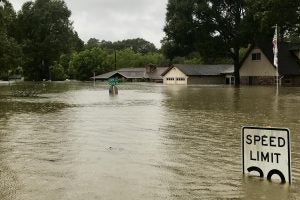 April 11, 2022
by Hunter Johnston
Climate change
Regulations
Sustainability
April 11, 2022
by Hunter Johnston
Climate change
Regulations
Sustainability
Personal carbon trading refers to a variety of downstream cap-and-trade policies that allocate rights and responsibilities for those greenhouse gas emissions caused by individual consumption of energy during household energy use and/or personal travel…
 April 7, 2022
by Liz Goldstein
Air
Regulations
April 7, 2022
by Liz Goldstein
Air
Regulations
What should regulators pay attention to as rocket launches become more commonplace?
 March 3, 2022
by Isaac Golub
Regulations
Sustainability
March 3, 2022
by Isaac Golub
Regulations
Sustainability
In 2009, the Obama administration created the electric vehicle tax credit to encourage purchasing electric vehicles (EVs). However, the bill included a built-in phaseout that starts once a manufacturer sells 200,000 electric vehicles. Is the current phaseout quota necessary, or is it ending the tax credit prematurely?
 February 2, 2022
by Priya Sinha
Litigation
Regulations
Water
February 2, 2022
by Priya Sinha
Litigation
Regulations
Water
On Monday, January 24, 2022, the Supreme Court granted review of Sackett v. EPA to determine the definition of a “water of the United States,” or WOTUS, under the Clean Water Act (CWA). The outcome of the case could potentially reshape the reach of…
 January 18, 2022
by Emma Schwartz
Chemicals
Regulations
Water
January 18, 2022
by Emma Schwartz
Chemicals
Regulations
Water
The Biden EPA recently released a comprehensive plan for tackling PFAS, a class of toxic forever chemicals. It’s a step forward, but is it enough to get this national problem under control?
 December 22, 2021
by Ju-Ching Huang
Climate change
Regulations
Sustainability
December 22, 2021
by Ju-Ching Huang
Climate change
Regulations
Sustainability
How well can FEMA's existing flood insurance and grant programs protect Americans under climate change?
Background
Climate change is now impacting Americans' daily lives, and floods, in particular, are a pressing issue. Under the threat of climate…
 November 15, 2021
by Drew Savage
Climate change
Regulations
Sustainability
November 15, 2021
by Drew Savage
Climate change
Regulations
Sustainability
President Biden is soon expected to name his nominee to lead the Federal Reserve. Can it become a more climate-focused institution?
 November 7, 2021
by Yanai Ben Gigi
Climate change
Litigation
Regulations
November 7, 2021
by Yanai Ben Gigi
Climate change
Litigation
Regulations
The Supreme Court will soon hear a case that may alter the regulation of carbon dioxide emissions under the Clean Air Act and expand the reach of the nondelegation doctrine.
 August 19, 2021
by Garrett S. Kral, Esq.
Litigation
Online Supplemental Article
Regulations
August 19, 2021
by Garrett S. Kral, Esq.
Litigation
Online Supplemental Article
Regulations
By Garrett S. Kral, Esq.*
*Garrett S. Kral is a former U.S. EPA official and political appointee for the Trump administration.
 January 12, 2021
by Shannon Twiss
Agriculture
Climate change
Regulations
January 12, 2021
by Shannon Twiss
Agriculture
Climate change
Regulations
Policymakers should take a closer look at the way the effects of climate change are taking their toll on our most essential workers in agriculture, manufacturing, and emergency response.











